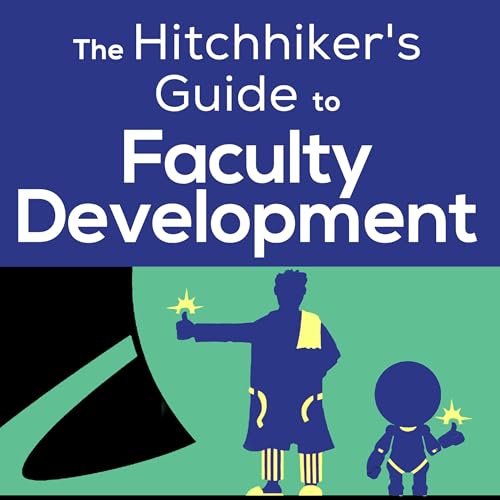
20 - Using Bodyswaps for interview practice in an MSc Physiotherapy programme
Failed to add items
Sorry, we are unable to add the item because your shopping cart is already at capacity.
Add to basket failed.
Please try again later
Add to Wish List failed.
Please try again later
Remove from Wish List failed.
Please try again later
Follow podcast failed
Unfollow podcast failed
-
Narrated by:
-
By:
About this listen
In this episode I speak to two of our MSc Physiotherapy students, Carly Walker and Alice Hockham, alongside Dean Walker, to discuss their experiences with Bodyswaps — a VR platform for developing non-technical healthcare skills.
Highlights
- Bodyswaps provides immersive experiences focusing on communication, empathy, and professional presentation in both VR and desktop formats
- Students co-created scenarios, including a cardiac rehabilitation simulation based on personal experience
- The platform provided automated, personalised feedback on communication elements like empathy and body language
- Students particularly valued seeing themselves from an external perspective during interactions, offering unique reflective opportunities
- Desktop mode enabled engagement with larger groups (57 students in one session) through collaborative learning
Key takeaways
- VR helps shift focus from clinical knowledge to person-centred, empathetic care
- Student involvement in content creation increases engagement and authenticity
- The technology supports asynchronous, self-directed learning opportunities
Advice for implementation
- Ensure robust technical support for onboarding and troubleshooting
- Consider desktop mode as a cost-effective alternative to VR headsets
- Focus on integration with existing curriculum rather than complete redesign
- Trust students to take ownership of their learning with the technology
- Use VR to complement traditional teaching rather than replace it
No reviews yet
In the spirit of reconciliation, Audible acknowledges the Traditional Custodians of country throughout Australia and their connections to land, sea and community. We pay our respect to their elders past and present and extend that respect to all Aboriginal and Torres Strait Islander peoples today.



